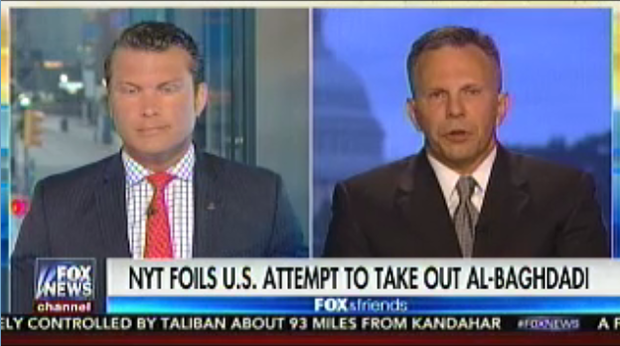Trump Accuses Ex-FBI Director Comey of ‘Crimes’ and Calls for Him to Be Investigated By a ‘Special Council’

President Donald Trump continued a Twitter flurry Saturday morning by accusing former FBI Director James Comey of “crimes” and demanding to know why Attorney General Jeff Sessions or a “special council” have not investigated him.
Starting bright and early Saturday morning, Trump has furiously tweeted — ten times in 2 hours — on a variety of subjects from Hillary Clinton to Obamacare.
“So many people are asking why isn’t the A.G. or Special Council [sic] looking at the many Hillary Clinton or Comey crimes. 33,000 e-mails deleted?” Trump tweeted before defending his son, Donald Trump Jr. over his emails, writing: “My son Donald openly gave his e-mails to the media & authorities whereas Crooked Hillary Clinton deleted (& acid washed) her 33,000 e-mails!”
You can see those tweets and quite a few more below:
So many people are asking why isn't the A.G. or Special Council looking at the many Hillary Clinton or Comey crimes. 33,000 e-mails deleted?
— Donald J. Trump (@realDonaldTrump) July 22, 2017
…What about all of the Clinton ties to Russia, including Podesta Company, Uranium deal, Russian Reset, big dollar speeches etc.
— Donald J. Trump (@realDonaldTrump) July 22, 2017
My son Donald openly gave his e-mails to the media & authorities whereas Crooked Hillary Clinton deleted (& acid washed) her 33,000 e-mails!
— Donald J. Trump (@realDonaldTrump) July 22, 2017
In all fairness to Anthony Scaramucci, he wanted to endorse me 1st, before the Republican Primaries started, but didn't think I was running!
— Donald J. Trump (@realDonaldTrump) July 22, 2017
The Republican Senators must step up to the plate and, after 7 years, vote to Repeal and Replace. Next, Tax Reform and Infrastructure. WIN!
— Donald J. Trump (@realDonaldTrump) July 22, 2017
ObamaCare is dead and the Democrats are obstructionists, no ideas or votes, only obstruction. It is solely up to the 52 Republican Senators!
— Donald J. Trump (@realDonaldTrump) July 22, 2017
Reality
Donald Trump demanding investigations of his political rivals and those in law enforcement who investigated him screams that he is completely innocent.
Let’s step through each claim:
Donald Trump Jr. openly gave emails
Trump’s eldest son released the emails just minutes before The New York Times published a report detailing the contents of the emails, which show that Trump Jr. was told before the meeting that the information about Clinton was part of a Russian government effort to help his father’s presidential campaign.
Democrats are obstructionists
No, one of the parties has an idea for healthcare for this country, Democrats, and they passed it and it is called the Affordable Care Act. Republicans only want to take it away.
And just the previous week, ten Democrats put forth a plan to mend the ACA that did not involve removing 22 million Americans from healthcare coverage.
Republicans, on the other hand, made obstructionism their party identity for 8 years during the Obama Administration.
Hillary Clinton sold Russia Uranium
Clinton did not sell a uranium mine to Russia, she was Secretary of the State Department when they and, this is important, 9 total agencies signed-off on a sale of an energy company to a Canadian-based Russian subsidiary. Again, very important, she didn’t have the power to approve or reject the deal.
Hillary Clinton acid washed 33,000 emails
You can’t “acid wash” emails, that’s not a thing.









